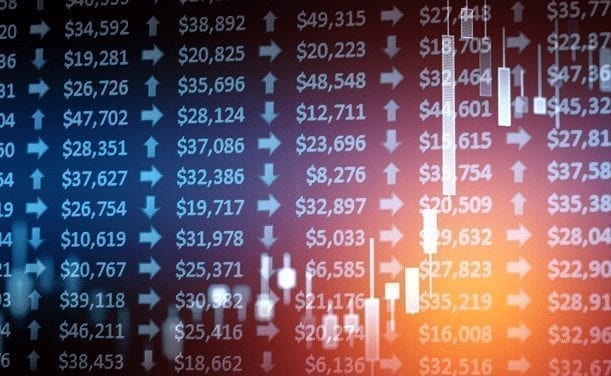Futures contracts are agreements between a seller and a buyer that an asset – such as index, currency or commodity – will be purchased or sold for a specific price at a specific date in the future. This date is called the expiration date. Futures markets trade these type of contracts.
YOUR CAPITAL IS AT RISK
Futures contracts cover how many different commodities, indices, and commodities, offering a wide range of trading products. Additionally, they don’t involve any trading restrictions. Here’s what you simply must know what are futures in trading and how you can make a neat profit through futures trading.
- A futures contract trades in underlying assets like stocks, commodities, and indices
- Futures trading carries equal elements of risk and reward
- Margins, ticks, leverages are all crucial concepts in futures trading
- Futures trading strategies can be based on fundamental or technical analysis
Futures Contracts Explained
Futures contracts are traded by long-term as well as day traders and those with an interest in underlying commodities. Both the buyer and seller of the contract are obliged to fill the requirements towards the close of the contract term. While day traders are also trading in futures, they do not hold the contract position until it expires. They realize profit or loss on their position through offsetting trades. For understanding what are futures contracts, it is essential to understand their history.

Futures contracts were designed to permit farmers to hedge against changes in the prices of their crops between planting and the period during which they were harvested and sold at the market. While producers and end users continue to hedge against risk using futures, it is essential to examine what are futures in trading in the context of investors and traders, in the modern context.
Essentially, traders or investors use futures contracts for speculation and gaining profit by placing bets on the direction of the asset’s movement. Futures contracts are traded on futures exchanges such as Intercontinental Exchange/ICE or Chicago Mercantile Exchange/CME. Further, to trade a futures contract, brokers charge commissions. Day traders generally look for low commission brokers as they negotiate the ticks and how the futures contracts vary in price.
How Futures Contracts Move
To understand what are futures, the tick must be considered first and foremost. This is the minimum price fluctuation that can be made by the futures contract being traded. For instance, crude oil may move in a lower increment or tick size, in contrast to the Emini S&P 500 (ES). Each tick of movement indicates a monetary profit or loss for the trader holding a specific position. Further, what are futures in trading also centres on the concept of margins.
These refer to the amount a trader must have in the account to make the trade. Margins vary across futures contracts and brokers. Every futures contract refers to a specific amount of a given commodity or security. For example, a widely traded futures contract is crude oil, which has a contract unit of a certain size. While futures contracts once focused on agricultural commodities, now the focus is on contracts linked to precious metals, industrial metals, energy, stocks, and bonds. Futures contracts are standardised agreements for trading on future exchanges across the globe. The price agreed on is determined in the open market on these exchanges. One party in the contract agrees to purchase a certain quantity and take delivery on a specific date, while the other party provides and arranges for the delivery. While futures contracts are clear to understand, what are futures in trading and how does one invest in futures?
How To Invest in Futures?
Basically, the futures trader can initiate long or short positions depending on the move anticipated by the speculator for the price on which the futures contract will trade. This can be attained by going long (buying) or going short (selling) on single or multiple futures contracts. While taking a long position, the trader anticipates an upward swing in the price of futures contracts and vice versa. Along with commercial hedgers, speculators also make money off futures in trading. What are futures contracts that are valuable? These are essential futures contracts that rise, and the owner of such a contract could sell it for a profit. This is a long position.
It is also possible to speculate on the price of the futures contract lowering and sell short with the aim of making profit over downward movement in prices. Futures contracts are not purchased and sold over a single market segment, however, nearly every asset that is commonly traded can underlie a contract. What are futures trading benefits for individual traders? Well, there’s near-instant execution due to advanced technologies. Additionally, there are multiple market choices and the cost of trading is extremely low. Futures trading also offers liquidity. Based on the particular instrument, futures contracts can be settled through cash or delivery of the underlying products. Minimum price change being the tick, the value it represents varies based on the product.
Learn About Futures Trading Products
Most products have different trading profiles. Consequently, the futures contracts on them carry different specifications. Different futures products vary in terms of expiration schedules as well. While some may have monthly new contracts, others may have a new contract each quarter and so on. Trading in markets and knowing what are futures contracts schedule is important, if you want to make a profit. To know the contract roll and when the trading activity for the market moves to the next expiry period is crucial. By itself, a futures contract has no value. It is the instruments that are being traded that give it the value. Futures contracts have a shelf life.
Moreover, the futures contract is standardised in terms of contract sizes and expiry dates so they can be freely traded. Buyers may not know the identity of sellers and vice versa. It is the clearing house of the stock exchange which settles trades of the investors. While trust is the currency of trading, in futures contracts, placing a trade is all about margins and leverages. While futures exchanges are high on transparency, the complexity of factors that influence the direction of price movement make predicting futures trading patterns highly complicated.
Concepts and Types of Futures Contracts
While derivative contracts that empower the trader to buy or sell stocks at a given date for a fixed price is known as stock futures, index futures bet on indices. Once the contract is purchased, terms of the agreement must be upheld. The lot or contract size varies too. In a derivatives market, for instance, contracts cannot be traded for single shares. Instead, the stock future contract comprises a fixed lot of an underlying share. What are futures in the context of contract duration?
Specifically, futures contracts are available in durations of near month/1 month, middle month/2 months and far month/3 months. Once contracts expire, another one is introduced in their place. The month in which a contract expires is called the contract month. But futures trading is more than commodities or even stocks. You can trade shares of bitcoins, ETFs and individual stocks and bonds. With the greater potential for leverage, than owning securities directly, futures trading offers the benefit of making big profits through low-cost trading. Each futures contract also comes with specific parameters. These include the unit of measurement, the way trade will be settled and the currency unit in which the contract is denominated. Also specified are the quality of goods covered or delivered under the contract, and the currency in which the contracts are quoted.
Futures Trading: Making Profits Through Price Movements
Grade or quality considerations may also come into play for certain assets like metals (for their purity) or energy stocks (for certain octanes). Magnifying the asset’s small price movements in order to create profits and generate returns are the core of futures in trading. Leverage and margin rules in futures trading are consequently more liberal. Some commodities brokers even permit leverages of 10 or 20 is to 1. It all depends on the contracts. The reward/risk principle operates directly in correlation with the leverage. The greater the leverage, the higher the gains or losses, depending upon the nature of change in prices.
Consider that a 6 percent change in prices can cause investors leveraged 10:1 to lose or gain 60% of the investment. Volatility is a feature of most futures markets. But futures trading also permits hedgers to shift risks to speculators. It also provides an efficient conception of what the future price is likely to be. Current futures price also determines the supply and demand of futures contracts. Based on margin trading, it permits small-time speculators to trade in futures by investing a small margin instead of the complete value of physical holdings.
Why Trading Futures Can Be Risky
- Being over-leveraged can prove risky. Many traders invest extensively in futures contracts are there is greater potential for leverage, as opposed to trading these instruments directly on equity markets. Leverage as prevalent in the futures-trading markets revolves around the considerable position in an underlying commodity while investing based on small amounts of the cash margin. Where the profits are plenty, the risks can also amplify. This is why over-leveraging is a two-edged sword. Knowing the basics of technical and fundamental analysis and mechanics of future trading is, therefore, critical to avert such losses.
- The nearer to expiry a contract is, the more liquid it is. Traders investing in them are higher in number and there is more trading volume referred to as liquidity. The number of contracts one can trade is based on the balance and the trading margin. Larger investors may trade thousands of contracts at a given time. Futures contracts are known as derivative financial instruments as they derive price value from the movement of another instrument. Consequently, the derivative’s price is not a function of inherent value, but changes in the instrument the derivative tracks. To understand the risks involved, it is crucial to differentiate futures from other financial instruments.

How Futures Trading is Different From Other Types
- Futures are different as they are derivative financial instruments.
- Additionally, a futures contract has a finite life.
- A futures contract has a set expiry date, making market direction and timing critical while trading futures. Regarding the spreads and the leverages, the outcome depends on complex relations between trading instruments in a futures contract.
- Futures trading is riskier than selling stocks because future positions are highly leveraged. Initial margins set by futures exchanges are small compared to the contract’s cash value. This is the reason for the popularity and profitability of futures trading.
- The smaller the margins, the higher the leverage. But if losses are piling on, stop-loss orders can be used to protect trades.
- Competitive and information intensive, futures trading is influenced by a composite range of factors. As the price is pre-determined, risks are lowered, helping the trader to reduce the cost of placing a trade. Due to the leverage factor, risks and rewards can both be amplified.
- Derivative products like these are more complicated to trade than stocks or indices.
- The more volatile a market, the higher is its margin rate. Low margins provide a chance to trade on undercapitalized accounts as well.
How to Trade in Futures
While fundamental analysis focuses on the underlying factors, while technical analysis focuses on predicting future price actions through historical price and volume evaluation via technical indicators like charts. But unlike traditional stock trading limited to these forms of analyses, futures trading has many tools such as risk management, stop-loss orders, diversification, and different theories such as cost-of-carry model, expectancy model etc.
A futures market offers many benefits, but these don’t come for free. Margin payments are the key differentiators in assessing what profits will accrue. Initial, exposure and premium margins are some common types. Essentially, the value of futures trading is its ability to influence the price based on estimated demand and supply. As technology advances, futures trading is becoming more sophisticated and access to exchanges and futures products is on the rise. In the stock markets which are ever evolving, trading futures is essential to make profits and stay ahead of the changing times. Futures trading has great value for economies, industries, markets and traders alike. This is what powers the value of futures trading.
PEOPLE WHO READ THIS ALSO VIEWED:









